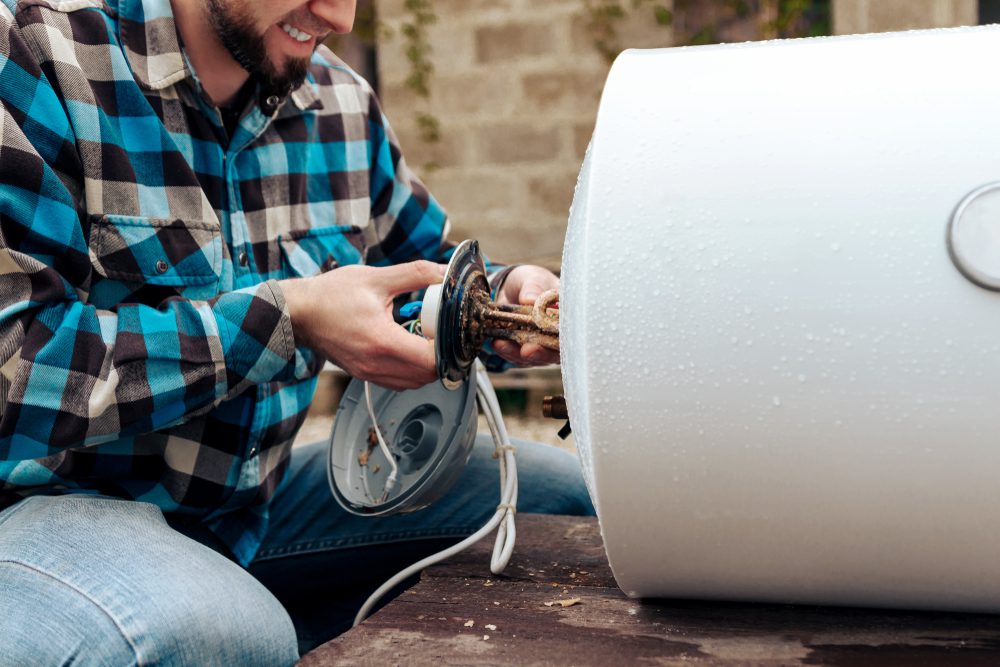This article following next on the subject of Common Hot Water Heater Problems is absolutely entertaining. Don't skip it.

A water heater is just one of the most essential fundamental appliances that can be discovered in a house. With water heaters, you do not require to go through the tension of heating water manually each time there is a requirement to wash, wash, or the dishes. However, there is constantly a possibility that your water heater would act up similar to most mechanical devices.
It is essential to keep in mind any type of little malfunction and also tackle it swiftly before points get out of hand. Most times, your water heater begins to malfunction when there is a build-up of debris as a result of continual usage. As a precaution, regular flushing of your water heater is advised to stop sediment build-up as well as avoid practical failure.
Usual water heater emergencies and how to deal with them
Dripping water heater container.
In this circumstance, you should transform off your water heating unit, permit it to cool down, and also carefully look for the source of the issue. At times, all you require to do is to tighten a few screws or pipeline links in situations of small leaks. If this does not function as well as the leak persists, you may require to employ the services of a specialist for an ideal replacement.
Fluctuating water temperature.
Your water heating system can start creating water of various temperature levels typically ice hot or cold warm. There might be a demand to change either the heating or the thermostat device of your water heating unit.
Insufficient warm water
It may be that the water heater can't sustain the hot water demand for your apartment. You might upgrade your water heating system to one with a larger capacity.
Stained or stinky water
You need to understand if the concern is from the water or the storage tank resource when this occurs. You are certain that it is your water heater that is defective if there is no amusing odor when you run cool water. The odiferous water can be brought on by corrosion or the buildup of microorganisms or debris in the hot water heater container. You can try flushing out your tank or changing the anode if the problem persists once you notice this. The feature of the anode is to clean microorganisms from your storage tank. Because the anode rod replacement requires a comprehensive understanding of your water heater, you will need the aid of a specialist.
Final thought
Some homeowners ignore little warning as well as minor faults in their hot water heater device. This only causes additional damages as well as a feasible complete breakdown of your appliance. You should deal with your hot water heater faults as soon as they come up to stay clear of more expenses and also unneeded emergency difficulties.
With water heaters, you do not need to go through the stress and anxiety of home heating water by hand every time there is a requirement to take a bath, do the washing, or the meals. Your water heating unit could begin creating water of different temperature levels normally ice cold or hot warm. It might be that the water heating unit can't sustain the hot water demand for your house. If there is no funny smell when you run chilly water, then you are specific that it is your water heating system that is damaged. The odiferous water can be triggered by rust or the build-up of microorganisms or debris in the water heater container.
Common Water Heater Issues and What You Should Do
What Type of Water Heater Do You Have?
Before we begin it’s first important that you identify the type of water heater you have on your property. There are two main types of water heaters out there: conventional and high efficiency.
Both of these types of products typically use either gas or electricity to heat power. There are also solar water heaters that use a thermal collector on the roof or yard to heat the water.
While these models are not as common, they can cut heating costs in half. In this article, we will focus on conventional and high efficiency.
How Do My Electric and Gas Water Heater Work?
Though they look similar, electric and gas water heaters work very differently. It’s important to know their basic function because often problems can be specific to the heating source.
In the electric model, a thermostat on the side of the machine detects the temperature of the water in the tank. When the temperature needs to rise electricity flows to a heating element suspended in the water.
Gas models also use a thermostat device — typically with a mercury sensor at the tip and an additional sensor called a thermocouple. The thermocouple detects whether the pilot light is on and controls the flow of gas.
When the thermostat drops below the appropriate level gas is released which becomes ignited by the pilot light. The flame heats the bottom of the water tank which causes hot water to rise and cold water to drop.
This natural circulation continues until the water reaches the desired temperature. Then, the thermostat triggers the gas control valve to shut off the flow of gas.
What Are the Most Common Issues and How Do You Fix Them?
https://happyhiller.com/blog/common-water-heater-issues-and-what-you-should-do/

I am very serious about Is Your Water Heater Leaking? and I really hope you enjoyed reading the page. I beg you take a moment to promote this content if you enjoyed reading it. Thanks for going through it.
Call us now!